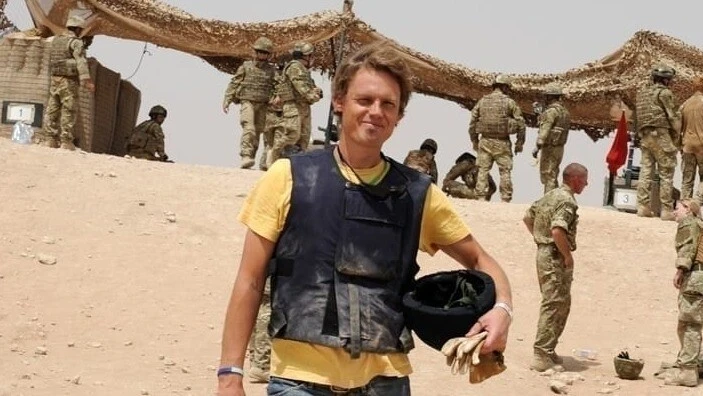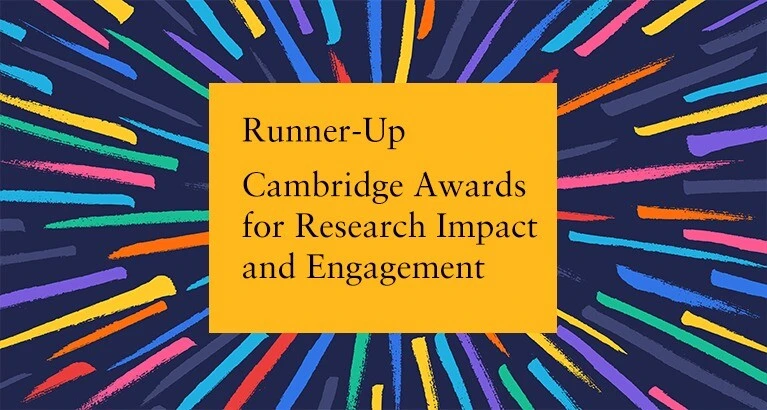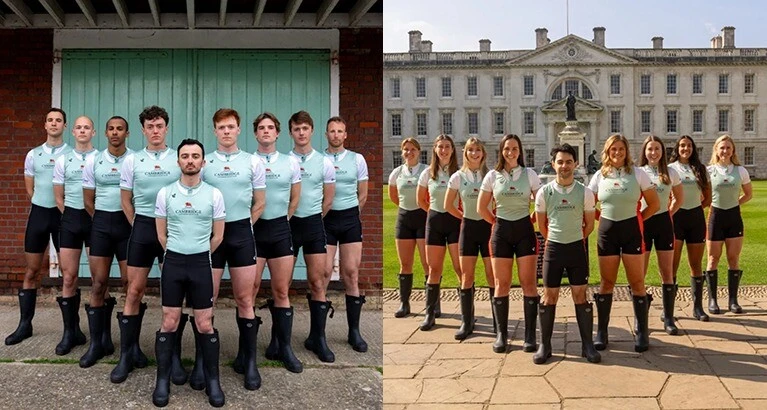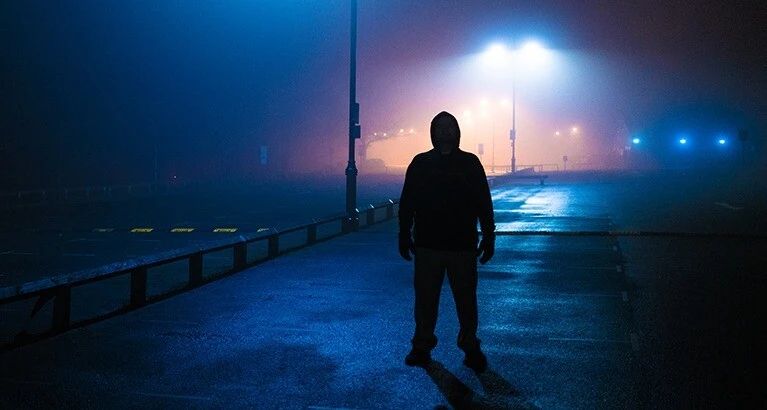Professor of Organisational Ethnography
Fellow of Darwin College
DPhil (University of Oxford)
I am interested in how people live challenging circumstances on their own terms – in the explanations they give for why things are as they are and in the compromises they make with life and those around them.
My approach to research means living life as they do and has included sustained periods spent with doctors and nurses at war, Boat Race crews, a ragtag band rowing the Amazon, peace activists, and paedophile hunters.

Professional experience
Mark’s unique fieldwork and teaching approach have fostered an eclectic portfolio of executive education clients, including Slaughter and May, Allen & Overy, Linklaters, White & Case, and various other law firms; Stonehage Fleming, McKinsey, KPMG, PWC, Ernst & Young and other professional service firms; organisations such as Sky, Ascential, OfCom, Lloyds-TSB, BT, Diageo, Moody’s, The Economist, and the NHS, and such NGOs as UNICEF, the British Academy, and the Church of England. He received training in mediation and negotiation at Harvard Law School (Program on Negotiation), is part of the University mediation team, and holds advanced degrees in management and economics, photojournalism and documentary photography, in biography and creative nonfiction, and in creative writing (prose fiction). His research has featured widely in the press, including in The New Yorker, The Atlantic, New York Times, Washington Post, The Economist, TIME magazine, Rolling Stone, The Financial Times, The Times, The Sunday Times, Times Literary Supplement, The Guardian, The Week, Der Spiegel, Forbes, The Huffington Post, The Los Angeles Times, The Evening Standard, The Wall Street Journal, The British Medical Journal (BMJ), The Lancet, and on the BBC’s Thinking Allowed, Thought for the Day, and World Service. His photographs have been published in The Independent, The Daily Mail, The Daily Telegraph and by the BBC News.
Previous appointments
Prior to joining Cambridge Judge Business School, Mark was an assistant professor in strategy at ESSEC Business School, Paris, a college lecturer at University College and Trinity College (University of Oxford), a research fellow at The Wharton School, University of Pennsylvania (2001), and a Fulbright visiting scholar at Stanford University (2008).
Publications
- Selected publications
- Journal articles
- Special issues of journals
- Books, monographs, reports and case studies
- Book chapters
- Conference papers
- Working papers
- Book reviews
Selected publications
- de Rond, M. (2025) Dark justice: inside the world of paedophile hunters. Cambridge: Cambridge University Press.
- Learn more about the documentary film Predators, as premiered at Sundance 2025 where it was nominated for the Grand Jury Prize
- Reviewed by Max Jeffery in The Times
- Reviewed by Lucy Denyer in The Telegraph
- de Rond, M., Lok, J. and Marrison, A. (2022) “To catch a predator: the lived experience of extreme practices.” Academy of Management Journal, 65(3): 870-902 (DOI: 10.5465/amj.2020.1492)
- de Rond, M., Holeman, I. and Howard-Grenville, J. (2019) “Sensemaking from the body: an enactive ethnography of rowing the Amazon.” Academy of Management Journal, 62(6): 1961-1988 (DOI: 10.5465/amj.2017.1417) (2019 OMT Best Published Paper Award)
- de Rond, M. (2017) Doctors at war: an ethnographer’s account of life and death in a field hospital. Ithaca, NY: Cornell University Press.
More about this publication:- EGOS Best Book Award, 2018
- Finalist, George R. Terry Book Award, 2018
- Honorable Mention, Outstanding Qualitative Book Award, 2018
- Online coverage:
- Reviewed by Randall Collins on The Sociological Eye website
- Read an excerpt from the book on The Times website
- Read an interview with Mark de Rond in the Times Higher Education Supplement
- Listen to an interview with Mark on BBC Radio 4
- Reviewed by Karl E Weick in Administrative Science Quarterly
- Reviewed by Barbara Czarniawska in Organization
- Reviewed by Thomas Roulet on the Symbolic Interaction (Journal) Blog
- Reviewed by Jason E Pelletier in Military Review
- Reviewed by Omar Dewachi in Medical Anthropology Quarterly
- Reviewed by Leo van Bergen in Medicine, Conflict and Survival
- Reviewed by Lorena Nunez Carrasco in Sociology of Health and Illness
- Van Maanen, J. and de Rond, M. (2017) “The making of a classic ethnography: notes on Alice Goffman’s On the Run.” Academy of Management Review, 42(2): 396-406 (DOI: 10.5465/amr.2016.0373)
- de Rond, M. and Lok, J. (2016) “Some things can never be unseen: the role of context in psychological injury at war.” Academy of Management Journal, 59(6): 1965-1993 (DOI: 10.5465/amj.2015.0681) (AMJ 2016 Best Published Article, EGOS Best Conference Paper finalist, Research Impact on Practice Award finalist)
- Lok, J. and de Rond, M. (2013) “On the plasticity of institutions: containing and restoring practice breakdowns at the Cambridge University Boat Club.” Academy of Management Journal, 56(1): 85-207 (DOI: 10.5465/amj.2010.0688) (Paper shortlisted for the OMT Best Published Paper Award, Academy of Management, 2014)
Journal articles
- Chiang, E., de Rond, M. and Lok, J. (2024) “Identity in a self-styled ‘paedophile-hunting’ group: a linguistic analysis of stance in Facebook group chats.” Applied Linguistics, 45(4): 599-620 (DOI: 10.1093/applin/amad034)
- de Rond, M. (2023) “Here’s what you don’t get about war: a footnote to Lipstick.” Organization Studies, 44(2): 302-303 (DOI: 10.1177/01708406221131416)
- de Rond, M., Lok, J. and Marrison, A. (2022) “To catch a predator: the lived experience of extreme practices.” Academy of Management Journal, 65(3): 870-902 (DOI: 10.5465/amj.2020.1492)
- Rouleau, L., Hällgren, M. and de Rond, M. (2020) “Covid-19 and our understanding of risk, emergencies, and crises.” Journal of Management Studies, 58(1): 243-246 (DOI: 10.1111/joms.12649)
- de Rond, M., Holeman, I. and Howard-Grenville, J. (2019) “Sensemaking from the body: an enactive ethnography of rowing the Amazon.” Academy of Management Journal, 62(6): 1961-1988 (DOI: 10.5465/amj.2017.1417) (2019 OMT Best Published Paper Award)
- de Rond, M. and Tunçalp, D. (2017) “Where the wild things are: how dreams can help identify countertransference in organizational research.” Organizational Research Methods, 20(3): 413-437 (DOI: 10.1177/1094428116689706) (Featured on the American Sociological Association’s Organizations, Occupations and Work’s Winter 2017 Reading List)
- Hällgren, M., Rouleau, L. and de Rond, M. (2017) “A matter of life or death: how extreme context research matters for management and organization studies.” Academy of Management Annals, 12(1): 111-153 (DOI: 10.5465/annals.2016.0017) (Academy of Management Annals 2018 Best Published Article)
- Van Maanen, J. and de Rond, M. (2017) “The making of a classic ethnography: notes on Alice Goffman’s On the Run.” Academy of Management Review, 42(2): 396-406 (DOI: 10.5465/amr.2016.0373)
- Liu, C. and de Rond, M. (2016) “Good night, and good luck: perspectives on luck in management scholarship.” The Academy of Management Annals, 10(1): 409-451 (DOI: 10.1080/19416520.2016.1120971)
- de Rond, M. and Lok, J. (2016) “Some things can never be unseen: the role of context in psychological injury at war.” Academy of Management Journal, 59(6): 1965-1993 (DOI: 10.5465/amj.2015.0681) (AMJ 2016 Best Published Article, EGOS Best Conference Paper finalist, Research Impact on Practice Award finalist)
- de Rond, M. (2014) “The structure of serendipity.” Culture and Organization, 20(5): 342-358 (DOI: 10.1080/14759551.2014.967451)
- de Rond, M. (2014) “Why less is more in teams.” Harvard Business Review OnPoint, Spring: 13-14
- Lok, J. and de Rond, M. (2013) “On the plasticity of institutions: containing and restoring practice breakdowns at the Cambridge University Boat Club.” Academy of Management Journal, 56(1): 85-207 (DOI: 10.5465/amj.2010.0688) (Paper shortlisted for the OMT Best Published Paper Award, Academy of Management, 2014)
- de Rond, M. (2012) “Soldier, surgeon, photographer, fly: fieldwork beyond the comfort zone.” Strategic Organization, 10(3): 256-262 (DOI: 10.1177/1476127012452819)
- Sminia, H. and de Rond, M. (2012) “Context and action in the transformation of strategic scholarship.” Journal of Management Studies, 49(7): 1329–1349 (DOI: 10.1111/j.1467-6486.2012.01059.x)
- King, A. and de Rond, M. (2011) “Boat Race: rhythm and the possibility of collective performance.” British Journal of Sociology, 62(4): 565-585
- Midwinter, M.J., Mercer, S., Lambert, A.W. and de Rond, M. (2011) “Making difficult decisions in major military trauma: a crew resource management perspective.” Journal of the Royal Army Medical Corps, 157(3, Suppl.1): S299-S304
- Runde, J. and de Rond, M. (2010) “Evaluating causal explanations of specific events.” Organization Studies, 31(4): 431-450
- de Rond, M. (2008) “Teams: lessons from the Oxford and Cambridge Boat Race.” Harvard Business Review, 86(9): 28
- de Rond, M. and Thietart, R.A. (2007) “Choice, chance and inevitability in strategy.” Strategic Management Journal, 28(5): 535-551 (DOI: 10.1002/smj.602)
- de Rond, M. and Thietart, R.A. (2007) “Responsabilité stratégique des dirigeants: entre hasard, choix et inévitabilité.” Revue Française de Gestion, 33(172): 63-77
- Lou, K. and de Rond, M. (2006) “The ‘not invented here’ myth.” Nature Reviews Drug Discovery, 5: 451-452
- de Rond, M. and Miller, A.N. (2005) “Publish or perish: bane or boon of academic life?” Journal of Management Inquiry, 14(4): 321-329
- de Rond, M. and Bouchikhi, H. (2004) “On the dialectics of strategic alliances.” Organization Science, 15(1): pp.56-69
- de Rond, M. (2002) “Reviewer 198, the hedgehog, and the fox: next generation theories in strategy.” Journal of Management Inquiry, 11(1): 35-45
Special issues of journals
- Rouleau, L., Musca, G. and de Rond, M. (2014) “Special issue on from the ethnographic turn to new forms of organizational ethnography.” Journal of Organizational Ethnography, 3(1)
Books, monographs, reports and case studies
- de Rond, M. (2025) Dark justice: inside the world of paedophile hunters. Cambridge: Cambridge University Press.
- Learn more about the documentary film Predators, as premiered at Sundance 2025 where it was nominated for the Grand Jury Prize
- Reviewed by Max Jeffery in The Times
- Reviewed by Lucy Denyer in The Telegraph
- Blagden, D. and de Rond, M. (2018) Games. Cambridge: Cambridge University Press. (DOI: 10.1017/9781108565738)
- de Rond, M. (2017) Doctors at war: an ethnographer’s account of life and death in a field hospital. Ithaca, NY: Cornell University Press. (EGOS Best Book Award, 2018; Finalist, George R. Terry Book Award 2018, Honorable Mention, Outstanding Qualitative Book Award, 2018)
- Review of Doctors at War by Randall Collins
- Read an excerpt from the book on The Times website
- Read an interview with Mark in the Times Higher Education Supplement
- Listen to an interview with Mark on BBC Radio 4
- Reviewed by Karl E. Weick in Administrative Science Quarterly
- Reviewed by Barbara Czarniawska in Organization
- Reviewed by Thomas Roulet on the Symbolic Interaction (Journal) Blog
- Reviewed by Jason E. Pelletier in Military Review
- Reviewed by Omar Dewachi in Medical Anthropology Quarterly
- Reviewed by Leo van Bergen in Medicine, Conflict and Survival
- Reviewed by Lorena Nunez Carrasco in Sociology of Health and Illness
- de Rond, M. (2013) A supposedly fun thing that I will never do again. London: Blurb.
- de Rond, M. (2012) There is an I in team: what sports coaches and elite artists really know about high performances. Boston, MA: Harvard Business Review Press.
- de Rond, M. and Morley, I. (eds.) (2010) Serendipity: fortune and the prepared mind. Cambridge: Cambridge University Press.
- de Rond, M. (2008) The last amateurs: to hell and back with the Cambridge Boat Race crew. London: Icon Books.
- de Rond, M., Burdus, S. and Hebblethwaite, S. (2007) “Cobra Beer: biting into new markets.” European Case Clearing House (ECCH).
- de Rond, M. (2003) Strategic alliances as social facts: business, biotechnology, and intellectual history. Cambridge: Cambridge University Press.
- Faulkner, D.O. and de Rond, M. (eds.) (2000) Cooperative strategy: economic, business and organizational issues. Oxford: Oxford University Press.
Book chapters
- de Rond, M. (2021) “Ethnography and the traffic in pain.” In: Mir, R. and Fayard, A.L. (eds.) Routledge companion to anthropology and business. New York, NY: Routledge
- de Rond, M. and Hallett, T. (2019) “The long walk to Aleppo: institutional myths, inhabited institutions, and ideals in the real world.” In: Reay, T., Zilbert, T.B., Langley, A. and Tsoukas, H. (eds.) Institutions and organizations: a process view. Oxford: Oxford University Press, pp.134-153
- Claus, L., de Rond, M., Howard-Grenville, J. and Lodge, J. (2019) “When fieldwork hurts: on the lived experience of conducting research in unsettling contexts.” In: Zilber, T.B., Amis, J.M., Mair, J. (eds.) Research in the sociology of organizations: vol.59: the production of managerial knowledge and organizational theory: new approaches to writing, producing and consuming theory. Bingley: Emerald Group Publishing, pp.157-172
Conference papers
- Runde, J. and de Rond, M. (2007) “Evaluating causal explanations of samples of one.” In: Organization Studies as Applied Science: The generation and use of academic knowledge about organizations: Organization Studies Summer Workshop, 3rd, 7-9 June 2007, Crete, Greece.
- de Rond, M. and Marjanovic, S. (2005) “The legitimacy of messiness: interdisciplinary research and interorganizational relationships.” In: A new vision of management in the 21st century: Academy of Management Annual Meeting, Research Methods Division, 5-10 August 2005, Honolulu, HI.
- de Rond, M. and Miller, A.N. (2005) “‘What’s young Dixon’s stuff like?’: the effect of publish-or-perish cultures on faculty.” In: Getting through the research pipeline: Western Academy of Management Annual Conference, 46th, 30 March-2 April 2005, Las Vegas, NV.
- de Rond, M. and Thietart, R-A. (2005) “Chance, choice and inevitability in strategy.” In: A new vision of management in the 21st century: Academy of Management Annual Meeting, OMT Division, 5-10 August 2005, Honolulu, HI.
- de Rond, M. and Thietart, R.A. (2005) “Innovation is seeing what everybody else has seen, but thinking what nobody else has thought.” In: Strategic management: achievements and opportunities: Strategic Management Society Conference, 25th, 23-26 October 2005, Orlando, FL.
- de Rond, M. and Thietart, R-A. (2005) “The structure of serendipity.” In: A new vision of management in the 21st century: Academy of Management Annual Meeting, Technology and Innovation Management Division, 5-10 August 2005, Honolulu, HI.
- de Rond, M. (2004) “Chance, choice and determinism.” In: Critical Realist Workshop, 3 May 2004, Cambridge.
- de Rond, M. and Bouchiki, H. (2003) “On the dialectics of strategic alliances.” Democracy in a knowledge economy: Academy of Management Annual Meeting, Organization and Theory Division, 1-6 August 2003, Seattle, WA, USA.
- de Rond, M. and Miller, A.N. (2003) “The brave new world of business school faculty: publishing, perishing, and the democracy of knowledge.” Democracy in a knowledge economy: Academy of Management Annual Meeting, Research Methods Division, 1-6 August 2003, Hawaii, USA.
- de Rond, M. and Thietart, R.A. (2003) “Chance, choice and inevitability in strategy.” Democracy in a knowledge economy: Academy of Management Annual Meeting, Organization and Management Theory Division, 1-6 August 2003, Seattle, WA.
- de Rond, M. (2001) “Reviewer 198 and next generation theories in strategy.” In Academy of Management (eds.) How governments matter: Academy of Management Best Paper Proceedings (61st), 3-8 August 2001, Washington, D.C., USA. [Published on CD-ROM], pp.RM:A1-A6
Working papers
- de Rond, M. and Thietart, R.-A. (2004) “Chance, choice and determinism in strategy.” Judge Institute of Management, Cambridge University, Research Paper No.2004/5
Book reviews
- de Rond, M. (2018) “Why is a raven like a writing desk? Damian O’Doherty: Reconstructing organization: the loungification of society.” Ephemera: Theory and Politics in Organization (published online)
- de Rond, M. (2015) “Michel Anteby: Manufacturing morals: the values of silence in business school education.” Organization Studies, 36(3): 391-393
Awards and honours
- Runner-Up, Cambridge University Awards for Research Impact and Engagement, 2025
- Shortlisted for the Bridport Short Story Prize, 2024
- Winner, Academic Research, Financial Times Responsible Business School Education Awards (for the AMJ article “To catch a predator: the lived experience of extreme methods”), 2024
- Sandra Dawson Research Impact Award, 2023
- OMT Best Published Article Award, 2020
- Cambridge Judge Business School Teaching Award, 2020
- The Last Amateurs listed on the JP Morgan “Words of Inspiration” Reading List Special (22 most inspiring books for difficult times from 20 years of reading lists), 2020
- Cambridge Judge Business School Teaching Award, 2019
- Academy of Management Annals Best Article Award, 2019
- EGOS Book Award (for Doctors at War), 2018
- Finalist, George R. Terry Award (for Doctors at War), 2018
- Honorable Mention, Outstanding Qualitative Book Award (for Doctors at War), 2018
- The Last Amateurs listed as “One of 30 best ever sports books”, Metro, 2018
- Academy of Management Journal Best Article Award, 2017
- Finalist, EGOS Best Conference Paper Award, 2017
- Honourable Mention, Research Impact on Practice Award, Organizations and the Natural Environment (ONE) Division, Academy of Management, 2017
- Sandra Dawson Research Impact Award (“in recognition of the outstanding impact of his research into the social dynamics of high performing teams”), 2016
- Winner, BAAG Afganistan Journalism Competition (based on Mark’s work on understanding the sociological basis of war-related PTSD), 2015
- Finalist, OMT Best Published Paper Award, Academy of Management, 2014
- Cambridge Judge Business School Teaching Award, 2014
- Gold Winner in the Feature Story Category and Gold Winner in the War Category, Prix de la Photographie Paris (Px3) (these photos are part of Mark’s work on PTSD among military medics and soldiers), 2013
- Cambridge Judge Business School Teaching Award, 2012
- Imagination Lab Award for Innovative Scholarship, awarded annually by the Swiss-based Imagination Lab Foundation and the European Academy of Management for work that is both highly scholarly and very innovative, 2009
- Financial Times Best Business Books of 2008 (The Last Amateurs)
- BBC Sport Best Sporting Reads of 2008 (The Last Amateurs)
- Fulbright Distinguished Scholar Award, 2007/8
- Ascendant Scholar Award by the Western Academy of Management, awarded annually to up to four young scholars who have shown exceptional promise in their early research careers, 2007
- George R. Terry Award for the book, published in the last two years, judged to have made the most outstanding contribution to the advancement of management knowledge, Academy of Management, 2005 (for Strategic Alliances as Social Facts: Business, Biotechnology & Intellectual History))
- Past Presidents’ Best Paper Award, Western Academy of Management, 2004
- Best Doctoral Student Paper Award, Research Methods Division, Academy of Management, 2001
- Shortlisted for the William H. Newman Award for Outstanding Paper based on PhD dissertation, Academy of Management, 2001
- American Friends of Christ Church Scholar, 1998-1999
Further information
On fieldwork with teams
On fieldwork with war surgeons
On fieldwork on the Amazon
News and insights
Mark de Rond, Professor of Organisational Ethnography at Cambridge Judge Business School, was named a Runner-Up in the Cambridge Awards for Research Impact and Engagement for his insightful work on the controversial practice of paedophile hunting for which he was embedded with such practitioners over 4 years. Mark was cited in the Established Academic category of the Awards, which are among the most prestigious at the University of Cambridge.
Student and alumni news
2025 Boat Race features 3 Cambridge MBA rowers
Olympians and other championship rowers from Cambridge Judge Business School compete for the women’s and men’s University of Cambridge squads on the River Thames.
A new book about the controversial practice of paedophile hunting, authored by Mark de Rond, Professor of Organisational Ethnography at Cambridge Judge Business School, is published on 6 March by Cambridge University Press (CUP).
Media coverage
The Telegraph | 21 March 2025
On the road with paedophile hunters – it’s a shocking tale
For months, Mark de Rond went on undercover ‘stings’ that saw predators exposed on camera. His new book, Dark Justice, is a troubling read.
The Times | 1 March 2025
A Cambridge professor goes inside the dark world of the paedophile hunters
In his new book Dark Justice, Mark de Rond recounts what he discovered after spending 4 years with a vigilante group who lure and catch online predators.
Poets & Quants | 28 September 2022
Favorite professors of the MBA class of 2022
Mark de Rond, Professor of Organisational Ethnography and Philip Stiles, Associate Professor in Corporate Governance at Cambridge Judge Business School, are featured in a Poets & Quants article about the favourite professors of the MBA class of 2022.
Luvina Weilu Yao, MBA student at Cambridge Judge (MBA 2022) is also mentioned in the article. (subs)
Poets & Quants | 1 August 2021
Favourite MBA professors of the class of 2021
Forbes | 13 July 2021
How extreme situations clarify your purpose, according to Cambridge Ethnography Professor Mark de Rond
Forbes, 14 July 2020
How to have courageous conversations in lockdown
Financial Times, 10 April 2020
‘Woodford protégé’ finds he needs to update CV
The Wall Street Journal, 21 February 2020
Nine ways to make your work day better
Network for Business Sustainability, 16 July 2019
When researchers affect what they study
Metro, 29 April 2015
Pick out these top 30 sports books
The Lancet, 5 May 2018
Moral injury in time of war
The Wall Street Journal, 18 April 2018
Running a team is becoming a ‘science’ for academia and the corporate world




